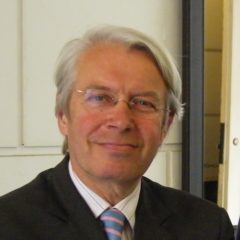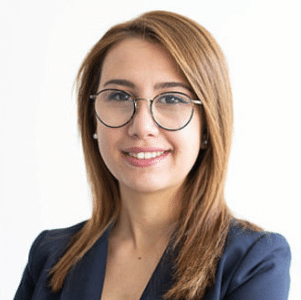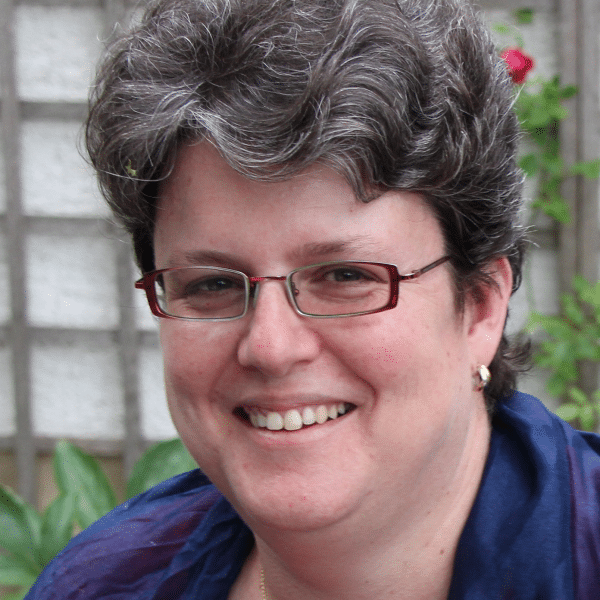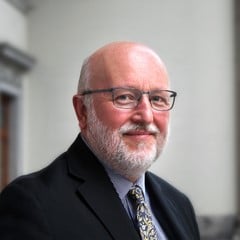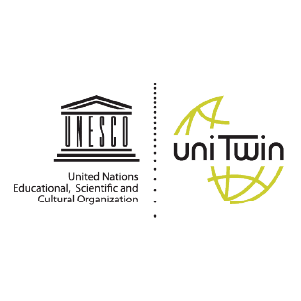Challenges & opportunities
Ensuring inclusive and equitable quality education in a post-pandemic era
Education empowers people to develop knowledge and skills that nurture new ideas and technologies. Education therefore is a catalyst for broader change, and critically important for driving progress towards sustainable development.
Recognising the important role of education, the 2030 Agenda for Sustainable Development highlights education as a stand-alone goal (SDG 4): 'Ensure inclusive and equitable quality education and promote lifelong learning opportunities for all'. Access to new technologies should provide the education sector with the means to innovate education systems and expand the access to better quality education for all.
The COVID-19 pandemic has brought these opportunities and challenges into sharper focus. On the one hand, it has given massive insights into how the role of technology can radically shift to reach 1.5 billion students affected by school closures. Rather than just disseminating content, it can also strengthen relationships between students and teachers. On the other hand, the COVID-19 crisis has also exposed deep inequities in the education system. With half of the affected students not having access to a household computer and 43% having no internet at home, far too many children are cut off from learning.
Conference programme
Education sessions
Watch our conference sessions. Sessions labeled were live-streamed from our studios in Brussels.
Education ICT
Deep dive session
Digital technologies for lifelong learning
26/10/2020, 11:30 - 13:00
As the capacity to innovate is increasingly becoming a key driver of economic and social development, employees continuously need to adapt to dynamic and fast-changing working conditions. Occupational and technical skills are, therefore, no longer sufficient. In addition to job-specific technical skills, employees need to have strong transversal and foundation skills. These include the skills to learn fast, adapt to change and manage business. Enterprises need to foster lifelong learning, making the best possible use of what digital technologies have to offer.
Chaired by

Jan De Groof
College of Europe
Professor
Jan De Groof is professor at the College of Europe (Bruges, Belgium) and at Tilburg University (the Netherlands), at the National Research University – Higher School of Economics in Moscow and extraordinary professor at the Edu-HRight Research Unit, North West University (South Africa) and previously at Ghent University (Belgium), teaching international and comparative educational law and policy. His academic work and numerous publications have covered many education rights-related issues but also constitutional and human rights law. His doctoral students, coming from several continents, focus on various aspects of the Right to Education.
De Groof has been visiting professor and/or taught at universities worldwide. He is founder and president of the European Association for Education Law and Policy (ELA) and co-founded the Russian and South-African Education Law Associations. He chaired – at the request of all regional Education Law and Policy Associations – the two World Conferences on Human Dignity, the Right to and Rights in Education (Amsterdam/The Hague, Brussels). De Groof holds the UNESCO Chair for the Right to Education and is former UNESCO Chargé de Mission on the Right to Education (2007-2010). He was and remains intensively involved in consultancy for national parliaments, governments and stakeholders, not the least in time of transition (Russia: 1990-2000, South Africa: 1995-2002), often in cooperation with multilateral organisations. He is member of the ‘Council of Senior Advisors’ of the International Association of University Presidents (IAUP), accredited to the UN, and vice-chair of the Legal Committee of EQAR. Furthermore, De Groof has been Team Leader of the EU-Project ‘The Rule of Law – Curriculum Reform of Legal Studies in Universities, especially in Iraq’.
In 2015 he received an Honorary Doctorate from the University of Pretoria (South Africa), giving “recognition to his significant role as leader in various fields of education and law, his global influence in education law during the late 20th and the 21th century, as well as his assiduous campaigning for justice and good governance in education,” and also chaired the Law Sessions in the framework of the World Congress on Catholic Education (Vatican, November 2015).
Lifelong learning: education for all ages
The rate of technological evolution both in everyday life and in the workplace makes it in many cases not possible for a traditional educational model to equip students with skills that will last a lifetime. At the very best, they should equip students with the ability to learn new skills throughout their life. That raises the question however of how such new skills can best be acquired.
Online learning is undoubtedly a promising avenue as demonstrated by the emergence of MOOCs (Massive Open Online Courses) and other open courseware offerings. However, there are difficulties in maintaining engagement in such portals and courses. Perhaps the greatest challenge for lifelong learning and the potential contribution of enterprises is how to render learning online both enjoyable and effective.
This is challenging for a whole range of reasons, starting with the need to elicit what topic might be of interest and use to the learners. In addition, it is indispensable to determine the gaps in their knowledge, identify the materials that are most likely to engage them and assess their progress. Finally, assistance should be provided either through additional materials or from other learners when difficulties are detected.

John Shawe-Taylor
University College, London
Director Centre for Computational Statistics and Machine Learning
John Shawe-Taylor, UNESCO Chair in Artificial Intelligence (AI), is a professor at University College London (United Kingdom) where he is Director of the Centre for Computational Statistics and Machine Learning (CSML). His main research area is Statistical Learning Theory, but his contributions range from Neural Networks to Machine Learning to Graph Theory.
John Shawe-Taylor obtained a PhD in Mathematics at Royal Holloway, University of London in 1986. He subsequently completed an MSc in the Foundations of Advanced Information Technology at Imperial College. He has coordinated a number of European wide projects investigating the theory and practice of Machine Learning, including the NeuroCOLT projects, and is currently the scientific coordinator of a Framework VI Network of Excellence in Pattern Analysis, Statistical Modelling and Computational Learning (PASCAL).
Digital technology innovation in taking forward education in India
The Covid-19 pandemic has forced educational institutions across the world to develop innovative methods of ensuring provision of quality education to students. In the Indian context, both national and state educational institutions have been catalyzed to transitions to digital modes of education at the school and university level. This movement has further increased access to academic resources amongst students and the general public, thereby promoting lifelong learning opportunities amongst them. It has led to innovations such as development of android apps that make it easier to access course material or even undertake online tutorials. Advent of online learning platforms is changing the perception and the mechanics of education in a way that one can learn without going into a formal and a physical system. Now even formal courses are being made available 24X7 on online platforms. Thus digital revolution is pushing new frontiers and introducing new dimensions that can make formal and informal learning a life-long possibility.
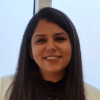
Shazia Azmat Fatima Rehman
Government of Delhi
Change-Maker in Education
Shazia A.F Rehman completed her master’s in economics from the Barcelona Graduate School of Economics, she is an alumni of Sri Venkateswara College, Delhi University and Delhi Public School, Noida. She is currently working as a Change-Maker in Education fellow with the Government of Delhi and contributing to the digital interventions and innovation in Education in Delhi.
Shazia has been involved in public policy projects and research in the development sector and has experience in working with prominent institutions like the University of Oxford, China Europe International Business School (CEIBS), Brookings India and the Centre for Advanced Studies in Policy Research (CASPR). She has gained international exposure while she was based in Kampala, Uganda to work on the research collaboration between the Uganda Revenue Authority (Ministry of Finance, Uganda) and the University of Oxford. Her research interests lie in the fields of development economics, public policy and governance. She endeavors to contribute to efficient policy formulation and implementation in India.
Readiness strategies for digital lifelong learning
Lifelong learning requires foundational skills to keep learning and adapting throughout life, to be developed in schools at early ages. Then, it also entails universal access to adult learning, for those already in the labour market to up- and re-skill and stay employable, especially if low qualified. Firms can play a key role to facilitate learning opportunities for their employees and new entrants.
Providing that quality assurance mechanisms are in place, education and training providers in the private sector can develop a relevant offering for this and uptake a business opportunity. Digital technologies have a great potential for lifelong learning, keeping in mind that sustainable technological solutions have to be inclusive, at a territorial and individual level, and that technology represents only one of many dimensions for digital learning.

Sara Baiocco
Centre for European Policy Studies
Researcher
With a background in development economics and an MSc in local economic development at the London School of Economics, Sara Baiocco decided to focus her PhD on labour and the impact of digitalisation on employment.
Since September 2018, she is a researcher in the Jobs and Skills Unit of the Centre for European Policy Studies (CEPS). At CEPS, Sara continues her policy-oriented research on skills, employment and working conditions in the continuously changing world of work.
Connecting passion with profession or why I will never retire …
What is the canvas for continuous and lifelong learning? What role does life expectancy play? Why should countries, businesses and other organizations consider it their responsibility to care for their people’s continuous and lifelong learning? How does Melexis go about in stimulating people towards continuous learning? What’s in it for me, really? And some myth busting …
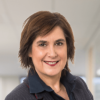
Françoise Chombar
Melexis
CEO Melexis & President Flanders STEM-Platform
Françoise Chombar is co-founder and CEO of Melexis. Melexis designs and develops innovative microelectronic solutions for the automotive industry, and is also growing in the smart appliance, home automation, industrial and medical equipment sectors. Françoise Chombar is a member of the board of directors of Umicore, a global materials technology and recycling group. She is also a member of the board of directors of Soitec, an international semiconductor materials manufacturer.
Françoise Chombar is chairwoman of the STEM platform, an advisory board of the Flemish Government that encourages young people to follow a STEM (Science, Technology, Engineering or Mathematics) education. Françoise Chombar was mentor for 17 years of the SOFIA network, a coaching, networking and training program for female entrepreneurs and women in management. As a ‘STEMinist’, she advocates more STEM and more inclusiveness and gender balance. That commitment is driven by her deep belief in its positive social impact.
In 2012, Françoise Chombar received the title of Honorary Ambassador for Applied Linguistics from UGent. She won the Vlerick Award in 2016 and the Global Prize for Women Entrepreneurs in 2018. That year she was also elected ICT Personality of the Year by Datanews and appointed Science Fellow at the VUB. In July 2019, she received the Honorary Sign of the Flemish Community.
SusTech4Africa: business growth support by and for talents
Micro, Small and Medium Enterprises (MSMEs) are the main drivers of job creation and economic growth in developing countries. Creating opportunity for MSMEs in these countries is an important way to promote development and reduce poverty.
Entrepreneurs for Entrepreneurs (OVO) facilitates socio-economic initiatives in low- and middle-income countries. It brings companies and entrepreneurs in Belgium into contact with initiatives of this nature. OVO encourages collaboration through financing and accessibility to expertise.
OVO has developed a Business Growth Support value chain based on intercultural and intergenerational interaction with great emphasis on mutual knowledge transfer. This is a means by which expertise, knowledge, skills and capabilities are transferred from a knowledge base to those in need of that knowledge. The purpose of the knowledge transfer is to catalyse and facilitate sustainability, growth and innovation of the private sector in Africa and Belgium.

Björn Macauter
Entrepreneurs for Entrepreneurs
General Manager
Since 2015, Björn Macauter has been working as General Manager at Entrepreneurs for Entrepreneurs. He holds a master’s degree in Applied Economic Sciences, a degree in International Politics and a master’s degree in Public Management. He started his career at Amnesty International Flanders as coordinator of political affairs. At the Regional Economic and Social Consultation Committee Mechelen, he experienced the strength as well as the pitfalls of intersectoral cooperation.
In 2012, he took up the challenge of developing LAScentrum, a training centre for welding techniques, into a self-supporting social enterprise. In less than 3 years, he succeeded in this goal by using his entrepreneurial skills and gathering the right people around him.
Within Entrepreneurs for Entrepreneurs he has paid a lot of attention to the further development of Entrepreneurs for Entrepreneurs as a networked organization, the effective deployment of voluntary experts, increasing the mutual transfer of knowledge between African and Belgian companies and entrepreneurs, and involving young people – the entrepreneurs of the future.
Dare to be CEO of your own life
How much longer do you want to put it off? How long can you manage your organisation, your team or your life without making some fundamental change? Above all, how long can you avoid being overtaken by others because you stick to your method and your comfort zone?
Our society is changing and crying out for a new model. We are living in a digital age where everyone and everything is connected, where competition no longer comes from the sector, and customers, users and citizens are in the driver’s seat. Data are gold, and sharing is the new having. The digital age requires a new approach and a new model.
Dare to help build a different business world, with a balance between short and long term results, but just as much to help make a different society that is ready for the next generation.
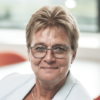
Saskia Van Uffelen
Digital Agenda
Digital Champion of Belgium
Saskia Van Uffelen has been working in the Information and Communication Technology (ICT) sector for over 25 years. She has held national and international sales and marketing functions in leading companies such as Xerox, Compaq, HP, Arinso, Bull and Ericsson. As Corporate Vice President at GFI, she currently oversees the development of the BeNeLux region for this French ICT group.
In 2012, the Federal Minister of Economic Affairs appointed Saskia Van Uffelen as the ‘Digital Champion’ representing Belgium at the European Commission. To stimulate the roll-out of the Digital Agenda in Belgium, she sensitizes all parties involved in 5 areas: digital economy, digital government, digital infrastructure, digital security and digital skills.
As a role model, Saskia Van Uffelen received various awards including ICT Woman of the Year (2011, Data News), Inspiring Woman in Science, Technology and Research (2013, Luxembourg), the Golden Spur for Economic Excellence (2016, Flanders) and the Etion Leadership Award 2019. In 2019, she was also nominated Belgian Manager of the Year.
Education
Deep dive session
Aligning curricula with the need for innovation
26/10/2020, 09:30 - 11:00
The pace at which technology develops today is unmatched. Technological processes learnt today might even no longer be relevant tomorrow. It is clear that curricula are no longer capable of providing the right skillsets for the future. Even if we were to change the content of these curricula right now, they would be outdated again in a few years. If we want to align curricula with the need for technological innovation properly, it is far more relevant to change the way how we update curricula rather than change their contents itself.
Chaired by

Jan De Groof
College of Europe
Professor
Jan De Groof is professor at the College of Europe (Bruges, Belgium) and at Tilburg University (the Netherlands), at the National Research University – Higher School of Economics in Moscow and extraordinary professor at the Edu-HRight Research Unit, North West University (South Africa) and previously at Ghent University (Belgium), teaching international and comparative educational law and policy. His academic work and numerous publications have covered many education rights-related issues but also constitutional and human rights law. His doctoral students, coming from several continents, focus on various aspects of the Right to Education.
De Groof has been visiting professor and/or taught at universities worldwide. He is founder and president of the European Association for Education Law and Policy (ELA) and co-founded the Russian and South-African Education Law Associations. He chaired – at the request of all regional Education Law and Policy Associations – the two World Conferences on Human Dignity, the Right to and Rights in Education (Amsterdam/The Hague, Brussels). De Groof holds the UNESCO Chair for the Right to Education and is former UNESCO Chargé de Mission on the Right to Education (2007-2010). He was and remains intensively involved in consultancy for national parliaments, governments and stakeholders, not the least in time of transition (Russia: 1990-2000, South Africa: 1995-2002), often in cooperation with multilateral organisations. He is member of the ‘Council of Senior Advisors’ of the International Association of University Presidents (IAUP), accredited to the UN, and vice-chair of the Legal Committee of EQAR. Furthermore, De Groof has been Team Leader of the EU-Project ‘The Rule of Law – Curriculum Reform of Legal Studies in Universities, especially in Iraq’.
In 2015 he received an Honorary Doctorate from the University of Pretoria (South Africa), giving “recognition to his significant role as leader in various fields of education and law, his global influence in education law during the late 20th and the 21th century, as well as his assiduous campaigning for justice and good governance in education,” and also chaired the Law Sessions in the framework of the World Congress on Catholic Education (Vatican, November 2015).
The challenges of digital learning environments
It has been argued that lifelong learning is the critical skill for our modern world, where industries and careers will often shift in response to the ongoing, dramatic shifts in our rapidly evolving world. Central to being adept with the skill of lifelong learning are a sense of urgency over one’s learning and an understanding of how to construct one’s own learning pathway and meet one’s own learning needs. These are all sub-skills that are essentially removed from traditional models of education.
In order to support learners in developing the critical skill of lifelong learning, we must deeply rethink how we organise learning environments and education systems, to one where they are empowered to drive their own learning from a young age. Progressive learning environments have understood this for some time and have been implementing these models for decades. Interestingly, these models also more effectively aligned with the extensive research from the Learning Sciences on how people learn best.

Jennifer Groff
MIT Media Lab & Education Arcade
Researcher
Jennifer Groff is a research assistant and PhD candidate at the MIT Media Lab and the MIT Education Arcade. Her research focuses on redesigning learning environments and experiences through learning technologies and system innovations.
Jennifer is a former teacher. For her innovative teaching in the classroom she was named a Microsoft Innovative Teacher Leader in 2005 and a Google Certified Teacher. She is the author of numerous frameworks on innovation in education systems, transformation, and design over educational reform, including the i5 framework and the ‘whole-mindedness’ pedagogical approach. Her current work is the LearningGraph, a platform that supports a universal model of learning progressions and standards to support learning technologies and education systems.
Jennifer Groff is the co-founder of the Centre for Curriculum Redesign, an international NGO dedicated to redesigning the general curricula for the 21st century. She was also the Vice President of Learning & Program Development for the Learning Games Network, a non-profit spin-off from the MIT Education Arcade.
Taking the SDGs into schools

Guido Schmidt-Traub
Sustainable Development Solutions Network
Executive Director
Guido Schmidt-Traub is Executive Director of the UN Sustainable Development Solutions Network and a member of the Governing Council of Future Earth. He has served as climate change advisor to the Africa Progress Panel secretariat and was CEO of Paris-based CDC Climat Asset Management.
From 2008-2010 Guido was Director and Partner at South Pole Carbon Asset Management in Zurich, a leading developer of greenhouse gas emission reduction projects. Prior to managing the MDG Support Team at UNDP (2006-2008) he served as Policy Advisor and then as Associate Director of the UN Millennium Project in New York, which was tasked with developing a concrete action plan for the world to achieve the Millennium Development Goals. Earlier Guido was Partner at IndexIT Scandinavia, a private equity fund for early-stage technology companies, and consultant at McKinsey & Company in Germany. He holds a PhD and a Masters in Economics, as well as a Masters in Physical Chemistry.
Aligning Engineering Education with Sustainable Development
The needs for innovation are changing along with time. Today, innovations, in context of the 4th industrial revolution, are needed for sustainable development. The UN sustainable development goals (SDGs) show a blueprint for building a future of peace and prosperity for all on a healthy planet. Every one of the Goals requires solutions rooted in science, technology and engineering. To train the young engineers to be able to carry out innovations to transform the world to sustainability using the emerging technologies of the 4th industrial revolution, the curriculum and methods of engineering education should be aligned with SDGs and the 4th industrial revolution.
Among many others, World Federation of Engineering Organizations is working hard with our partners on (1) embedding necessary knowledge and skills of sustainable development into curriculum of all engineering profession accordingly; (2) strengthening skills of using Information Communication Data Technology and Artificial Intelligence (ICDT&AI) for all engineering learners; (3) extending inter-disciplinary as well as international cooperation capability and (4) enhancing engineering ethics education for responsible engineering practices. It is necessary to establish a global benchmark standard of graduate attributes to guide the evolution of engineering education and ensure its quality.
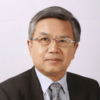
Gong Ke
World Federation of Engineering Organizations
President
After obtaining his Bachelor’s Degree in Engineering from Beijing Institute of Technology, he studied further in Technical University of Graz (Austria), where he worked on radio wave propagation in satellite links and obtained his Doctor Degree of Technological Science in 1986.
From 1987 to 2006, he worked in Tsinghua University, Beijing, as a full professor in Electronic Engineering (1994), Head of the Department of Electronic Engineering (1997-1999), Director of the State Key Laboratory of Microwave and Digital Communication at Tsinghua University (1997-2004), Vice President (R&D) of Tsinghua University (1999-2006), Director of Chinese National Research Center for Information Science and Technology at Tsinghua University (2004-2006). He served as the President of Tianjin University from 2006 to 2011. He carried on as the President of Nankai University in 2011 and stepped down in 2018.
Distance education for all: cure or curse in times of pandemic?
As the COVID-19 crisis enforced schools around the world to close, catastrophic consequences for young people’s education careers have been the result. Countries where digitalisation was sufficiently advanced, have embraced distance education using all sorts of digital media, up to the point where schools advocate the continuation of blended (on-site and distance) education for the future. However, this transition necessitates enormous investments in equipment, new learning materials and training. Moreover, inequalities (whether they relate to access to ICT tools or to skills) across the population seem to be at odds with the right to inclusive education for all. Social distancing must, therefore, go hand in hand with outreaching, bonding and solidarity, and we need to examine how countries in the global North and South are coping with this transition.

Idesbald Nicaise
KU Leuven
Professor
Ides Nicaise (KU Leuven) has a background in economics and works since 1989 as a research manager at HIVA (Research Institute for Work and Society), a multidisciplinary research institute of the University of Leuven (Belgium). He further specialised in social policy, more precisely the relationships between education, labour market policy and social inclusion in both developed and developing countries.
At the Department of Education Sciences at the University of Leuven, Ides Nicaise teaches ‘Economics of education’, ‘Lifelong learning and equal opportunities’ and ‘Education and Society’. Besides his professional activities, he is chairing the Belgian Combat Poverty Service.
Technological advancement and Education for Sustainable Development: New solutions and challenges for ESD for 2030
Technological advancements can help address some of the traditional sustainability challenges but also bring about new challenges. How can Education for Sustainable Development(ESD) help to harness the potential of technological developments towards sustainability, in light of the new global framework ESD for 2030 and its implementation in the next decade?

Won Jung Byun
Section of Education for Sustainable Development, UNESCO
Senior Project Officer
Won Jung Byun is currently Senior Project Officer in the Section of Education for Sustainable Development(ESD) at UNESCO Headquarters. Won’s work at UNESCO is mainly focused on ESD policy, in particular on preparing for the new global framework on ESD for the period of 2020-2030 called ‘ESD for 2030’. The new ten year framework will be launched at UNESCO World Conference on Education for Sustainable Development (May 2021, Berlin, Germany).
Before joining UNESCO, she has worked as executive director for the United Nations University’s programme Regional Centre of Expertise on Education for Sustainable Development (RCE) Tongyeong, Republic of Korea since 2005 and co-founded Tongyeong Education Foundation for Sustainable Development and an education centre called Sejahtera Forest, to promote ESD at local, national and regional level. Won also served in various committees including as Regional Coordinator for 42 RCEs in Asia-Pacific in 2009-2014.
Education
Deep dive session
Inclusive early childhood education
27/10/2020, 17:00 - 18:30
To ensure digital technology and Artificial Intelligence (AI) provide equitable and inclusive access to education, we have to focus on closing digital divides. Even where getting online is possible and affordable, extra efforts are needed to empower groups that are discriminated against and excluded. At the same time, we should be careful not to create any new kind of digital divides when deploying solutions powered by AI. These solutions need to focus entirely on providing learning opportunities for all, including marginalised people, people with disabilities, refugees, and those living in isolated communities.
Chaired by

Jan De Groof
College of Europe
Professor
Jan De Groof is professor at the College of Europe (Bruges, Belgium) and at Tilburg University (the Netherlands), at the National Research University – Higher School of Economics in Moscow and extraordinary professor at the Edu-HRight Research Unit, North West University (South Africa) and previously at Ghent University (Belgium), teaching international and comparative educational law and policy. His academic work and numerous publications have covered many education rights-related issues but also constitutional and human rights law. His doctoral students, coming from several continents, focus on various aspects of the Right to Education.
De Groof has been visiting professor and/or taught at universities worldwide. He is founder and president of the European Association for Education Law and Policy (ELA) and co-founded the Russian and South-African Education Law Associations. He chaired – at the request of all regional Education Law and Policy Associations – the two World Conferences on Human Dignity, the Right to and Rights in Education (Amsterdam/The Hague, Brussels). De Groof holds the UNESCO Chair for the Right to Education and is former UNESCO Chargé de Mission on the Right to Education (2007-2010). He was and remains intensively involved in consultancy for national parliaments, governments and stakeholders, not the least in time of transition (Russia: 1990-2000, South Africa: 1995-2002), often in cooperation with multilateral organisations. He is member of the ‘Council of Senior Advisors’ of the International Association of University Presidents (IAUP), accredited to the UN, and vice-chair of the Legal Committee of EQAR. Furthermore, De Groof has been Team Leader of the EU-Project ‘The Rule of Law – Curriculum Reform of Legal Studies in Universities, especially in Iraq’.
In 2015 he received an Honorary Doctorate from the University of Pretoria (South Africa), giving “recognition to his significant role as leader in various fields of education and law, his global influence in education law during the late 20th and the 21th century, as well as his assiduous campaigning for justice and good governance in education,” and also chaired the Law Sessions in the framework of the World Congress on Catholic Education (Vatican, November 2015).
Artificial Intelligence and inclusive education

Nuria Oliver
Vodafone Institute
Chief Advisor
As the named inventor of 41 patents, computer scientist Nuria Oliver is well known for her work in computational models of human behaviour, human computer-interaction, intelligent user interfaces, mobile computing and big data for social good. She invests significant effort in outreach efforts to make technology more accessible to non-technical audiences and to inspire young people (girls in particular) to pursue a career in technology.
Nuria Oliver holds a PhD from the Media Lab at MIT. She is a Fellow of the European Association of Artificial Intelligence (EAAI) and of the Institute of Electrical and Electronics Engineers (IEEE), a member of the Academia Europaea and the youngest female member of the Spanish Royal Academy of Engineering.
In 2018 she was named Engineer of the Year by the Professional Association of Telecommunication Engineers of Spain and she received an honorary doctorate from the University Miguel Hernandez.
Combining Artificial Intelligence and inclusive education technologies
Adaptive educational technologies as well as inclusion are two research fields that have a huge impact on current educational questions. Nevertheless, they are seldom seen together, which explains why there are not too many results in the intersection of both fields yet. It is therefore important to discuss possible directions for combining Artificial Intelligence in Education (AIED) and inclusive educational technologies, and illustrate this with some emerging practices.
Looking at the history of adaptive learning technologies and assistive technology (AT), it is interesting to highlight the impairment/disability dimension of inclusion and the combination of accessibility/inclusion with Artificial Intelligence (AI). At the same time, we should focus on the cultural dimensions of inclusion and the impact on AI in learning technologies and discuss the origins of cultural biases in technology. As gender and ethnicity are connected to this cultural dimension, they should therefore be considered in this discussion as well. Finally, a clear description should be available regarding the requirements for combining AI and inclusive learning technologies in the future. There is a need for more awareness of possible biases when creating learning systems and training algorithms with suitable data sets.

Gunay Kazimzade
Weizenbaum Institute for the Networked Society
Researcher
Gunay Kazimzade is a PhD student in Computer Science at TU Berlin, an award-winning Doctoral Researcher on Artifical Intelligence and a TEDx speaker. She is the founder of TechCentrum, a knowledge exchange platform in Emerging Technologies focusing on Data Science, Artificial Intelligence and Big Data. She also managed a number of social projects focused on computer science education, training over 3000 women and children in science, technology, engineering and mathematics.
Gunay is working at the Weizenbaum Institute for the Networked Society, the German Internet Institute. This institute investigates the current changes in all aspects of society occurring in response to digitalisation. The goal is to develop a comprehensive understanding of these changes based on rigorous academic analysis and to offer informed strategies to address them at a political and economic level.
Digital technologies and the empowerment of parents
Early childhood is not just the most crucial period in the life of children, but also very important in the lives of their parents. With the right support for educating children, the family can create a solid base for success in life. In the spirit of global Early Childhood Development policies and the UN Convention on the Rights of the Child, governments are to offer such support in forms and means that are most suitable for families.
During the first two years in the life of any child, this support should encourage education in the family and close community. Digital technologies are already there to provide empowerment and peer support for parents with very young children. Later on, the focus should also be put on formal education provisions. From a parental engagement perspective, this is a crucial time for equity and inclusion as vulnerable parents can be empowered to become equal partners of education professionals.
This kind of arrangement can have a major impact on children’s later success in formal education. We should therefore carefully look at the large evidence base as well as the many examples of existing and possible technology solutions to support this crucial parenting period as a means of inclusion for all.
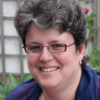
Eszter Salamon
International Parents
Director
Eszter Salamon is the Director of Parents International. Whereas she was originally trained as a teacher and practiced this profession for a number of years, she later became an economist and obtained a PhD in education leadership, with a special focus on parental engagement. In 1989, Eszter started dealing with children’s rights. Over the past 22 years, she has specialized in students’ rights and parents’ rights. For over a decade, she has been involved in international education and social topics, primarily focusing on the role, engagement and competences of parents.
Education
Thematic session
Top priorities for developing a future-proof educational system
28/10/2020, 09:30 - 11:00
Chaired by

Jan De Groof
College of Europe
Professor
Jan De Groof is professor at the College of Europe (Bruges, Belgium) and at Tilburg University (the Netherlands), at the National Research University – Higher School of Economics in Moscow and extraordinary professor at the Edu-HRight Research Unit, North West University (South Africa) and previously at Ghent University (Belgium), teaching international and comparative educational law and policy. His academic work and numerous publications have covered many education rights-related issues but also constitutional and human rights law. His doctoral students, coming from several continents, focus on various aspects of the Right to Education.
De Groof has been visiting professor and/or taught at universities worldwide. He is founder and president of the European Association for Education Law and Policy (ELA) and co-founded the Russian and South-African Education Law Associations. He chaired – at the request of all regional Education Law and Policy Associations – the two World Conferences on Human Dignity, the Right to and Rights in Education (Amsterdam/The Hague, Brussels). De Groof holds the UNESCO Chair for the Right to Education and is former UNESCO Chargé de Mission on the Right to Education (2007-2010). He was and remains intensively involved in consultancy for national parliaments, governments and stakeholders, not the least in time of transition (Russia: 1990-2000, South Africa: 1995-2002), often in cooperation with multilateral organisations. He is member of the ‘Council of Senior Advisors’ of the International Association of University Presidents (IAUP), accredited to the UN, and vice-chair of the Legal Committee of EQAR. Furthermore, De Groof has been Team Leader of the EU-Project ‘The Rule of Law – Curriculum Reform of Legal Studies in Universities, especially in Iraq’.
In 2015 he received an Honorary Doctorate from the University of Pretoria (South Africa), giving “recognition to his significant role as leader in various fields of education and law, his global influence in education law during the late 20th and the 21th century, as well as his assiduous campaigning for justice and good governance in education,” and also chaired the Law Sessions in the framework of the World Congress on Catholic Education (Vatican, November 2015).
How COVID flattened the educational curve and what to do?
With over one-third of all children having missed school for months and months, COVID has a clear impact in increasing the differences between children amongst different lines. To understand what needs to be done about this, we need not just to discuss those differences. We also need to look into further potential impacts and the possible solutions.

Pedro De Bruyckere
Artevelde high school
Postdoctoral Researcher
Pedro De Bruyckere (PhD) is the co-author of several books in Dutch on youth and education. He is also a frequent speaker on education topics at international events, one of his strongest points being that he is funny when explaining serious stuff. Pedro co-wrote the popular books Urban Myths about Learning and Education and More Urban Myths with Paul Kirschner and Casper Hulshof. He is also an avid blogger on new research in education.
Reimagining education in a post-COVID world: Getting SDG4 back on track
COVID-19 has devastated education systems around the world, creating a crisis of learning that runs the risk of reversing decades of gains, especially in low and middle income countries.

Chandrika Bahadur
Sustainable Development Solutions Network
President
Chandrika Bahadur is the Director of the SDG Academy. Previously she was President of SDSN Association from 2016 to 2020. Chandrika has led the education programs at UN SDSN since its inception. From 2008-2011, she was advisor to the Chairman and Managing Director at Reliance Industries, where she helped set up Reliance Foundation, a non-profit philanthropic foundation focusing on areas of education, health, rural development, and urban renewal.
From 2001-2008, Chandrika worked with the United Nations in different roles. In her last assignment, she was a Policy Advisor at UNDP’s Bureau for Development Policy in New York, working in Africa to help Ministries of Finance and Planning align their strategies to the Millennium Development Goals (MDGs), across 20 countries. From 2003-2006, she was part of the leadership team of the UN Millennium Project, an advisory group convened by the then UN Secretary-General Kofi Annan to recommend strategies for the MDGs. From 2001-2002 she worked on trade and HIV and AIDS programs at the United Nations. She has prior teaching experience at Harvard and Columbia universities.
Chandrika holds a Masters degree from the John F. Kennedy School of Government, Harvard University, an MBA from the Indian Institute of Management, Ahmedabad, and a BA (Honours) in Economics from St. Stephen’s College, Delhi University.
Investing in education as a ‘no regrets’ strategy for getting out of the crisis
COVID-19 is disrupting society and economy in a wide sense and both young people and vulnerable groups in the labor market are the hardest hit. This is why the Dutch Education Council recently called for targeted investment in education. Specific investments in education and focused and well-substantiated education policies are crucial to offer young and older generations good prospects. Three elements of our education systems warrant special attention: Early Childhood Education and Care (ECEC), Vocational Education and Training (VET) and Lifelong Learning and Development (LLD): for a good start, for a good job and for a good life. Investing in good quality ECEC, VET and LLL&D will prove to be a ‘no regrets’ strategy.

Edith Hooge
The Nederlandse Onderwijsraad
President
From context-based to competency-based education in a Post Pandemic Era for Sustainable Development
Novel educational frameworks provide the opportunity for educators to not only engage students in content-based education but also competency-based education through sustainable development goals. Specifically, opportunities provided by the SDGs not just provide a context to motivate students to employ integrated competencies to not only represent, understand, and solve real world problems. Such opportunities also engage them in using tools to make a decision, prediction, or solution about a real-world problem. This process helps to prepare students to become life-long learners through a variety of learning approaches including experiential learning, inquiry-based learning, challenge-based learning and interdisciplinary problem-based learning with connections made to the post-pandemic era.
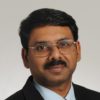
Seshaiyer Padmanabhan
George Mason University
Professor
Padmanabhan Seshaiyer (PADHU) serves as an Associate Dean at George Mason University, Virginia (USA). His research interests are in the broad areas of Computational Mathematics, Scientific Computing, STEM Education, Design and Systems Thinking, Innovation and Entrepreneurship and Sustainable Development Goals. During the last decade, he has initiated and directed a variety of educational programs including faculty development, post-graduate, graduate and undergraduate research, K-12 outreach, teacher professional development, and enrichment programs to foster the interest of students and teachers in STEM at all levels.
He is also actively involved in multiple global STEM collaborative projects involving the SDG 2030 and training programs that engage students, teachers and faculty from over 20 countries. He has won several prestigious awards for his contributions to teaching and research and holds affiliate faculty positions in multiple institutions including Arizona State University (USA), the Nelson Mandela African Institute for Science and Technology (Tanzania) and Advanced Teachers Training College (Suriname). In April 2019, he was selected as one of the “Figures that Matter” for his contributions to Academia and Society and was awarded an honorary doctorate by Vrije Universiteit Brussel.
Revisiting education in the post-COVID era
There is a strong need to revisit education in the post-COVID era. That requires a sharper focus on ‘STEM’ skill-building with a judicious augmentation by harnessing the digital revolution. While Smart education and the use of mobile devices as a learning tool offer great hope, the issues surrounding the access to technology can no longer be ignored. For the purpose apart from infrastructure provision, student and teacher training and capacity building will have to be undertaken at a war footing.
Equity in education will have to deal with not just bridging the Digital Divide but will also have to stress the relevance of education being imparted to the well-being of the disadvantaged learner, be it a girl child or a member of a marginalised community.

Abdul Samad Ibrahim
Indira Gandhi National Open University
Senior Professor
Abdul Samad Ibrahim is Deputy Director at the State-of-the-Art Electronic Media Production Centre (EMPC) of the world’s largest Distance Learning Institution – the Indira Gandhi National Open University (IGNOU).
As a senior educational technologist, he has worked with distinction in the field of educational technology for over 30 years. His work covers digitalisation of education from the development of e-content to delivery and management using multi-channels harnessing the best practices, including OERS and MOOCs.
He has incorporated behaviour change rooted in the evolution and revolution of Distance Learning through satellite-based applications to new media for training and development in collaboration with Indian Space Research Organization (ISRO). Due to his eminence, he was voted for a full term as a member of the Board of Management of the Indira Gandhi National Open University.
Special mention should be made of his research on education in postmodern societies with a focus on fast-developing continents such as Africa. In this research, he highlighted the need for education to become circular, moving from the advancements of development and progress through an informative engagement with science and technology back to being embedded in one’s mother community.
Education
Workshop
STEAM* education
28/10/2020, 13:00 - 14:30
+: adding ‘A’ to Science, Technology, Engineering, and Mathematics in the Anthropocene. This refers to ALL other capacities future generations need for society to be able to Adapt to the Anthropocene context and contribute the Agenda 2030. Arts and humanities are part of this, but so is integrating the laws of thermodynamics and complex systems thinking.
How can educational decision-makers (at institutional and political levels) broaden STEM-education facing complex 21st century challenges?

Anne Snick
KU Leuven
Country leader for Belgium
Anne holds a PhD in philosophy of education and is a researcher, lecturer and facilitator exploring new paradigms for Responsible R&I. She is the country leader for Belgium of the EU-funded STEAM+ project and is responsible for the development of the Implementation Path of STEAM+.

Jean Paul Gueneau de Mussy
Materials Innovation
CEO
Jean Paul is an entrepreneurial researcher passionate about finding new ways to use disruptive innovation to catalyzing better alternatives of doing business for the well-being of people and planet and not only for profit. Jean Paul is CEO of Materials Innovation.
Speakers
Education
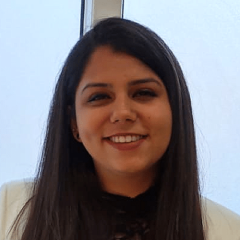
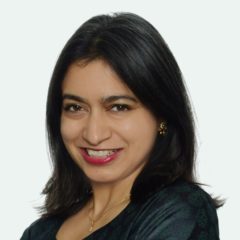
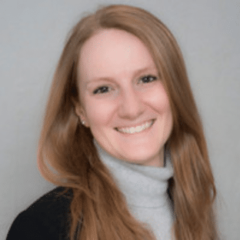
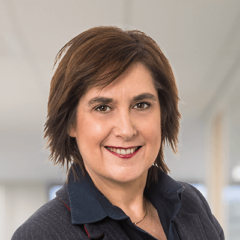

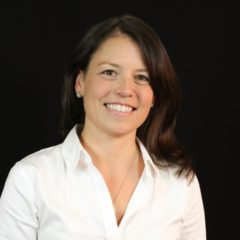
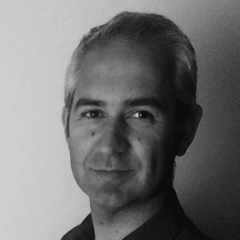
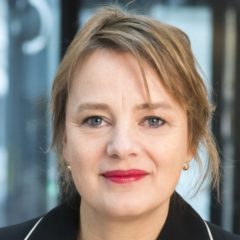
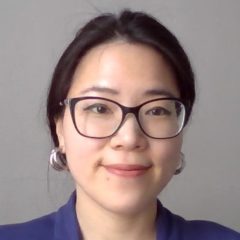
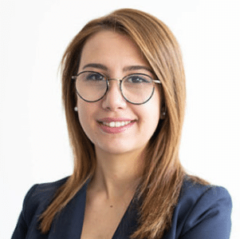
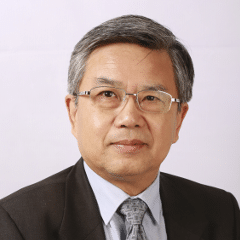
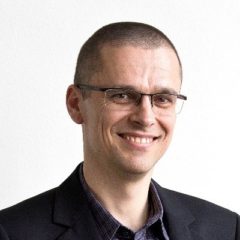
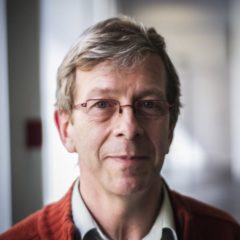
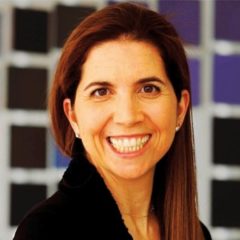
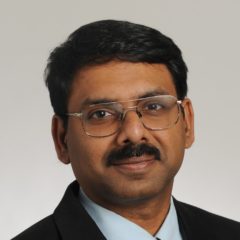
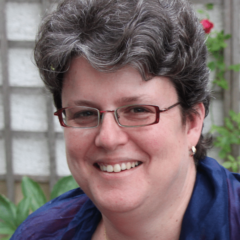

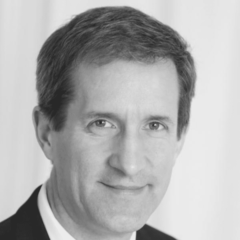
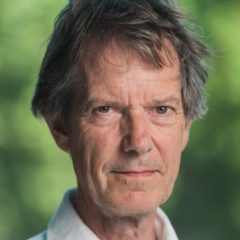
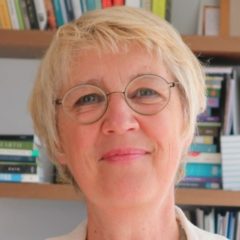
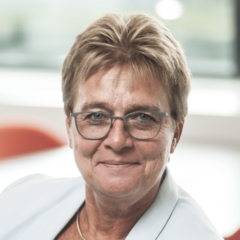
Deep dive sessions
Technological innovations for equitable quality education

Digital technologies for lifelong learning
As the capacity to innovate is increasingly becoming a key driver of economic and social development, employees continuously need to adapt to dynamic and fast-changing working conditions. Occupational and technical skills are, therefore, no longer sufficient. In addition to job-specific technical skills, employees need to have strong transversal and foundation skills. These include the skills to learn fast, adapt to change and manage business. Enterprises need to foster lifelong learning, making the best possible use of what digital technologies have to offer.
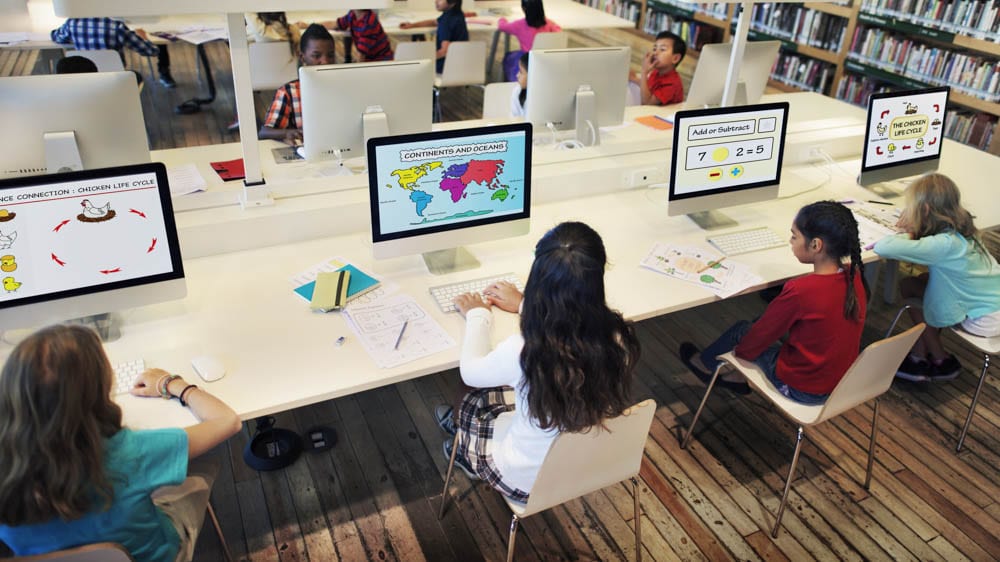
Aligning curricula with the need for innovation
The pace at which technology develops today is unmatched. Technological processes learnt today might even no longer be relevant tomorrow. It is clear that curricula are no longer capable of providing the right skillsets for the future. Even if we were to change the content of these curricula right now, they would be outdated again in a few years. If we want to align curricula with the need for technological innovation properly, it is far more relevant to change the way how we update curricula rather than change their contents itself.

Inclusive early childhood education
To ensure digital technology and Artificial Intelligence (AI) provide equitable and inclusive access to education, we have to focus on closing digital divides. Even where getting online is possible and affordable, extra efforts are needed to empower groups that are discriminated against and excluded. At the same time, we should be careful not to create any new kind of digital divides when deploying solutions powered by AI. These solutions need to focus entirely on providing learning opportunities for all, including marginalised people, people with disabilities, refugees, and those living in isolated communities.
Thematic closing session
Top priorities for developing a future-proof educational system
During the thematic closing session, thought leaders and world-renowned experts in the area of technological innovation and education will debate the key findings and recommendations emerging from the deep dive sessions. In doing so, they will focus on the policy, institutional and societal actions that are needed to strengthen the social acceptance of technological innovations and accelerate their market penetration. Both matters are top priorities when it comes to developing a future-proof educational system.
Thematic coordinators
Education
